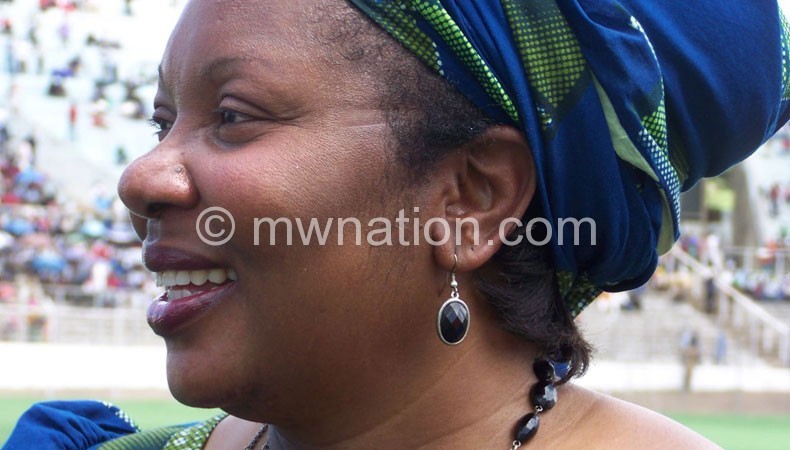‘We need to diversify energy sources’
The world has entered a decade of action to end poverty and ensure every person uses affordable and clean energy. A new study by the Rocky Mountain Institute shows the country needs up to $3 billion to supply electricity for all. Our staff writer JAMES CHAVULA asks CHIMWEMWE BANDA, chief director in the Department of Energy Affairs in the Ministry of Natural Resources, Energy and Mining to appreciate how the findings will help deliver energy for the excluded 90 percent of the population.

How are you going to use the study funded by UNOHRLLS, the United Nations high representative for least developed countries, to achieve Sustainable Development Goals (SDGs)?
We are going to work with even the private sector. Malawi is now working with independent power producers [IPPs] who are coming into the country to help us generate power for the nation. We cannot increase electricity supply by relying on government only, but also private companies. We have engaged some companies to generate solar power and others to bring us power from wind, geothermal, waste and coal.
The country has numerous good studies and strategies that fall short in terms of implementation. How will government turn the new findings into the change Malawians want?
The best way is to work together with all stakeholders. The team that contributed to the new study came from different backgrounds, including the academic, civil society, private businesses and service providers. This cocktail way of thinking brings together different perspectives, approaches and solutions needed to bring more power for Malawians to enjoy quality life and contribute positively national development. Government cannot do it alone. Other stakeholders have experience and resources we need to achieve SDGs
The Malawi Rural Electrification Programme started in 1980, but only four percent of the rural majority—meaning one in 25 rural dwellers—has electricity 40 years on, what are we going to do differently to achieve universal access to energy by 2030?
To achieve universal access by 2030, we have to do things differently and mini-grids will be important to deliver power right where people live. If we have mini-grids being installed and partners like United Nations Development Programme [UNDP] coming in to support us to find finances, rural electrification will move at a faster rate. Therefore, we should not just rely on one way of generating electricity. We should also not only rely on extending the grid operated by the Escom to rural areas. We need to diversify energy sources and approaches. In Mchinji, we have a solar mini-grid at Sitolo; that’s the way to go. In Mzimba and Mzuzu, we also have mini-grids in communities that are not connected to the national power grid. This is the way to go.
How do you feel about the country’s approach to energy-for-all goals which mostly hinges on extending the on-off grid, leaving behind clean cooking when 97 percent of the population cooks using firewood and charcoal?
The Department of Energy Affairs has initiatives to accelerate the uptake of alternative energy for cooking. We want to learn from other countries. In Tanzania, people in the villages use gas for cooking, but Malawians say it is dangerous. What makes it dangerous? We have not invested adequately in raising awareness so that the population can start using gas safely instead of cutting trees for energy. Therefore, we need to make people aware of energy sources they need to switch from fuels which harm their health, forests and the planet. People need to start thinking differently. They can use clean cookstoves, Chitetezo Mbaula, which use less firewood and emit less smoke than open fires.
The least-cost model shows Malawi can save up to $500 million if it invests about $3 billion in the right energy sectors by 2030. What can this saving change in the country?
If we make that saving, there is a lot that we can do. The money can be used to accelerate diversification of energy sources and distribution. Therefore, we should be working together to increase investment in sectors that will help us to reap this dividend. We should allow the private sector to work with government to transform the energy sector. So far, government has introduced waivers on solar accessories,
Nearly all the independent power producers keep missing deadlines when Malawians need electricity for home use and productive use. Why?
The IPP are here to Malawi to help us. When they come, they have to go through a due process as per our IPP Framework. They have to fulfill what is needed by government, Escom as off-taker and Malawi Regulatory Authority [Mera] guidelines. When they sign agreements to start producing power, it has been discovered that they are struggling to identify who finances the projects they are bringing to Malawi. This is a fact. They are struggling to find money for the projects. Some of them want guarantees, but guarantees are not given for every project.





